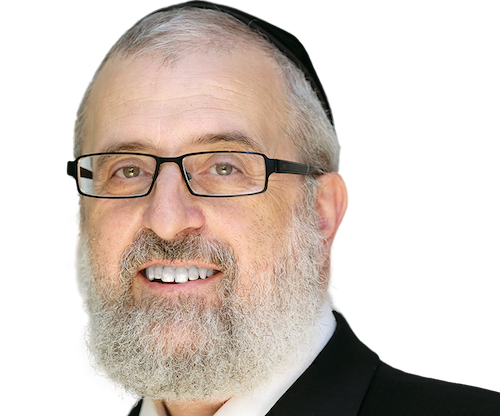New Alzheimer’s drug clears abnormal protein clogs in small, promising trial
BY KAREN WEINTRAUB, Scientific American

A new drug trial that some researchers are calling the most promising
yet in the fight against Alzheimer’s suggests it may be possible to
clear the brain of the amyloid protein that is characteristic of the
disease.
The study was small and researchers caution that it’s far too soon to
declare victory against a fatal disease that robs people of their
memories and ability to function in daily life. But despite repeated
failures of Alzheimer’s drugs in the past, there was room for enthusiasm
about the trial, the results of which were published today in Nature.
“This is the best news we’ve had in my 25 years of doing Alzheimer’s research,” says Stephen Salloway, a professor of clinical neurosciences and psychiatry at Brown University and a co-author of the paper.
The longer an early-stage Alzheimer’s patient took the drug aducanumab, and the higher the dose, the less clogged their brain was with amyloid a year later. The 21 subjects who made it through the study on the highest dose had no detectable amyloid deposits left in their brains after a year.
“The effect size of this drug is unprecedented,” says paper co-author Roger Nitsch, president and founder of Zurich-based Neurimmune, which initially developed aducanumab.
The drug also increased the risk of stroke and potentially dangerous fluid shifts in the brain, however, forcing a balancing act between its effectiveness and patients’ ability to tolerate a high-enough dose. Researchers were able to catch early signs of the side effect, known as amyloid-related imaging abnormalities (ARIA), through MRI brain scans, Salloway says, and no one in the trial suffered irreversible harm.
The small trial showed promise, but the real test of aducanumab is underway in two much larger studies funded in collaboration with the drug company Biogen, which has partnered with Neurimmune to bring aducanumab to market. Those trials, begun last year, will include 2,700 participants in North America, Europe and Japan, who will take the drug for 18 months. If the trials are successful, the companies will go on to apply to the U.S. Food and Drug Administration for permission to sell aducanumab to patients.

Salloway and others said they do not expect aducanumab, even if it
works well, to be “the” solution to Alzheimer’s. As with other complex
diseases like cancer and HIV, a cocktail or series of drugs will likely
be necessary. The drug will also likely be most useful at the disease’s
earliest stages, when removing amyloid can hopefully make a difference
in Alzheimer’s trajectory, said Biogen Group Senior Vice President
Alfred Sandrock, who led the research and press conference.
Aducanumab is an antibody, a natural substance the body produces to fight disease. The compound was derived from healthy older people who had not developed Alzheimer’s, under the presumption that they carried some kind of protective factors in their immune systems. It is still not completely clear how aducanumab works, although the study shows it targets amyloid in the brain but not in the bloodstream.
The hypothesis suggests antibodies that attack amyloid in the bloodstream get sidetracked and never make it into the brain. By focusing on brain amyloid, aducanumab seems to be able to cross into the brain to reach its target, researchers said at the press conference.
In the two larger studies participants will start on a lower dose to minimize their risk of ARIA, which is more likely to occur early in treatment, and people who carry at least one copy of the APOE ε4Alzheimer’s risk gene, who are more vulnerable to ARIA, will probably remain on a lower dose, according to Salloway.
Participants must have evidence of excessive amounts of amyloid in
their brains, as shown in a PET scan, before being allowed into the
study. This should help avoid a problem that may have doomed earlier
drug trials. Those trials failed in part, researchers think, because
they included too many people without excessive amyloid in their brains
and must therefore have had a form of dementia other than Alzheimer’s.
Earlier trials are also believed to have failed because they tested
patients whose disease was too advanced and the damage irrevocable. In
contrast, aducanumab is being tested in patients with only very early
evidence of disease.
Others in the Alzheimer’s field expressed enthusiasm this week for the paper and the ongoing study of aducanumab.
“The results are very impressive and very encouraging,” says Rudolph Tanzi, a neurologist at Harvard University and a longtime leader in Alzheimer’s research. “The fact is [the authors are] the first ones to show some level of proof that an anti-amyloid therapy is a way to treat or prevent Alzheimer’s.”
If the drug performs well in the larger trials, Tanzi says he expects it could be used in people in their 40s and 50s who are starting to show the first evidence of amyloid buildup. Clearing out amyloid then and keeping levels low with another type of drug that Tanzi is working to develop might prevent them from ever having Alzheimer’s, he says.
James Hendrix, director of global science initiatives for the Alzheimer’s Association, also praised the trial, saying he was impressed with its design as well as its results. He said the study also shows how crucial it is for people to volunteer for Alzheimer’s research studies, to help better understand the disease and how to treat it. Because of the stigma surrounding Alzheimer’s, researchers typically struggle to find enough volunteers to fill studies, he says, adding that the Alzheimer’s Association offers information on ongoing trials on its Web site.
This article is reproduced with permission from Scientific American. It was first published on August 31, 2016. Find the original story here.

Amyloid
plaques, a key feature of Alzheimer’s disease, were reduced
significantly
by a year of treatment with a new drug called aducanumab. Photo by Sevigny et al., Nature, 2016
by a year of treatment with a new drug called aducanumab. Photo by Sevigny et al., Nature, 2016
The results are very impressive and very encouraging.
“This is the best news we’ve had in my 25 years of doing Alzheimer’s research,” says Stephen Salloway, a professor of clinical neurosciences and psychiatry at Brown University and a co-author of the paper.
The longer an early-stage Alzheimer’s patient took the drug aducanumab, and the higher the dose, the less clogged their brain was with amyloid a year later. The 21 subjects who made it through the study on the highest dose had no detectable amyloid deposits left in their brains after a year.
“The effect size of this drug is unprecedented,” says paper co-author Roger Nitsch, president and founder of Zurich-based Neurimmune, which initially developed aducanumab.
The drug also increased the risk of stroke and potentially dangerous fluid shifts in the brain, however, forcing a balancing act between its effectiveness and patients’ ability to tolerate a high-enough dose. Researchers were able to catch early signs of the side effect, known as amyloid-related imaging abnormalities (ARIA), through MRI brain scans, Salloway says, and no one in the trial suffered irreversible harm.
Aducanumab is an antibody, a natural substance the body produces to fight disease.
The trial was too small to show whether the reduction in brain
amyloid made a difference in the everyday functioning of the
participants, although there were some indications the drug slowed
cognitive and functional decline in those who received the highest dose
for more than six months. Most of the trial results have been released previously
at public meetings. The new publication offers more depth and marks the
first time the results have been peer-reviewed and presented
comprehensively, the authors said in an August 30 news conference.The small trial showed promise, but the real test of aducanumab is underway in two much larger studies funded in collaboration with the drug company Biogen, which has partnered with Neurimmune to bring aducanumab to market. Those trials, begun last year, will include 2,700 participants in North America, Europe and Japan, who will take the drug for 18 months. If the trials are successful, the companies will go on to apply to the U.S. Food and Drug Administration for permission to sell aducanumab to patients.

Aducanumab,
a new drug, caused a dose-dependent reduction in amyloid plaques, a key
feature of Alzheimer’s disease. Photo by Sevigny et al., Nature, 2016
Aducanumab is an antibody, a natural substance the body produces to fight disease. The compound was derived from healthy older people who had not developed Alzheimer’s, under the presumption that they carried some kind of protective factors in their immune systems. It is still not completely clear how aducanumab works, although the study shows it targets amyloid in the brain but not in the bloodstream.
The hypothesis suggests antibodies that attack amyloid in the bloodstream get sidetracked and never make it into the brain. By focusing on brain amyloid, aducanumab seems to be able to cross into the brain to reach its target, researchers said at the press conference.
In the two larger studies participants will start on a lower dose to minimize their risk of ARIA, which is more likely to occur early in treatment, and people who carry at least one copy of the APOE ε4Alzheimer’s risk gene, who are more vulnerable to ARIA, will probably remain on a lower dose, according to Salloway.
If the drug performs well in the larger
trials…it could be used in people in their 40s and 50s who are starting
to show the first evidence of amyloid buildup.
Others in the Alzheimer’s field expressed enthusiasm this week for the paper and the ongoing study of aducanumab.
“The results are very impressive and very encouraging,” says Rudolph Tanzi, a neurologist at Harvard University and a longtime leader in Alzheimer’s research. “The fact is [the authors are] the first ones to show some level of proof that an anti-amyloid therapy is a way to treat or prevent Alzheimer’s.”
If the drug performs well in the larger trials, Tanzi says he expects it could be used in people in their 40s and 50s who are starting to show the first evidence of amyloid buildup. Clearing out amyloid then and keeping levels low with another type of drug that Tanzi is working to develop might prevent them from ever having Alzheimer’s, he says.
James Hendrix, director of global science initiatives for the Alzheimer’s Association, also praised the trial, saying he was impressed with its design as well as its results. He said the study also shows how crucial it is for people to volunteer for Alzheimer’s research studies, to help better understand the disease and how to treat it. Because of the stigma surrounding Alzheimer’s, researchers typically struggle to find enough volunteers to fill studies, he says, adding that the Alzheimer’s Association offers information on ongoing trials on its Web site.
This article is reproduced with permission from Scientific American. It was first published on August 31, 2016. Find the original story here.




